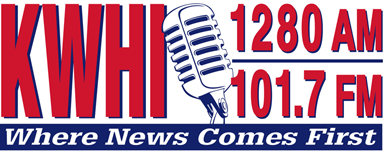BRENHAM CITY COUNCIL GIVES INPUT ON POTENTIAL CHANGES TO ACCESSORY DWELLING UNITS, CHILDCARE FACILITY PROPERTY TAXES
The Brenham City Council gave city staff feedback on Thursday about a suite of proposed changes to city code and possible property tax exemptions for childcare facilities.

for his 30 years with the City of Brenham's
Development Services Department.
The first part of the work session discussion revolved around accessory dwelling units (ADUs) and whether to loosen the residency requirements.
Currently, ADUs are allowed by specific use permit in the R-1 single-family residential district and by staff-level approval in the R-2 mixed residential and B-1 mixed residential/business use districts, but one of the conditions is that the property owner must live onsite, whether in the primary residence or in the ADU.
City Planner Shauna Laauwe said the city has had several prospective ADU applicants who wanted to rent out both the main home and the ADU, but the current system does not allow for that. The question posed to councilmembers was if they wished to stipulate in the code that the residency requirement only applies to properties in the R-1 district, or strike the requirement altogether for R-1, R-2 and B-1 properties.
Councilmembers preferred to keep the residency requirement inside the R-1 district, agreeing with a point made by Public Works Director Dane Rau that property upkeep is likely to be better if the owner is around. Questions did arise, though, of how the provision would be enforced. Development Services Director Stephanie Doland admitted that enforcement is difficult and would require assistance from neighboring properties, since city staff is not there to see who is coming and going from the subject property.
The next topic covered the residential district setback requirements of detached accessory structures, which can include ADUs but also carports or equipment sheds. Existing code states that the structures must be located behind the home on their own lot, but the council was asked if it wanted to add a restriction for corner lots that the structure must also be located behind the primary home on the adjacent lot. Doland said the intent of this would be to ensure that an accessory structure is not closer to the street than the neighboring property’s home.
Councilmembers Leah Cook and Dr. Paul LaRoche III said they were favorable to the proposed change, though less of an overall consensus was indicated by the council on the item.
After that, discussion moved on to the usage of alleys in subdivisions, which are currently prohibited. The suggestion by city staff, however, was to allow and encourage alleys in townhome developments to accommodate the design of garages and parking in the rear of lots. The alleys are kept up by the neighborhood and are often platted as a common area or private access area. The council quickly agreed that lifting the restriction on alleys would be beneficial.
Doland said she would return to the council with an ordinance amendment including the council’s suggestions once it is considered by the Planning and Zoning Commission.

Department are recognized after the city council's
proclamation of July as National Parks and
Recreation Month.
Later, the council was asked if it wished to authorize a property tax exemption to qualifying childcare facilities in the city, of which there are five that could currently meet the criteria. In November, voters approved an amendment to the Texas Constitution allowing local governments the option to exempt up to 100 percent, but no more than 50 percent, of the appraised real property value.
City Secretary Jeana Bellinger said that in order to qualify for an exemption, a childcare facility must participate in the Texas Workforce Commission’s (TWC) Texas Rising Star Program, which is a quality rating and improvement system for childcare programs that scores their director and staff qualifications and training, teacher-child interactions, program administration, and indoor and outdoor environments. In addition, at least 20 percent of the children enrolled must receive subsidized childcare services administered by the TWC.
Overall, the council was not in favor of approving any exemption at the moment, saying that the law as it is written right now is too broad. Currently, there is not a restriction on how a childcare center uses its exemption, and councilmembers preferred that the money saved would be required to either go toward facility improvements or saving on tuition for enrolled families.
Councilmembers also received a presentation on planned amendments to the city’s code for buildings and structures, adopting the 2021 editions of the International Building Code Suite and 2020 National Electric Code. The city is currently using 2018 International Building Code and 2017 National Electric Code.
The council’s first reading of an ordinance to adopt the updated code is scheduled for August 1st, with an effective date of October 1st.
Click here to view a summary of the major changes that are part of the new code.



This is the problem. If we want people to live and work in town, then they need a place to live.
Most folks will need to rent, be fore they can buy, so let the property owner rent out both units, the main house and mother in law cabin, or whatever you call it.
Too much control by those you have never been a landlord is the problem.